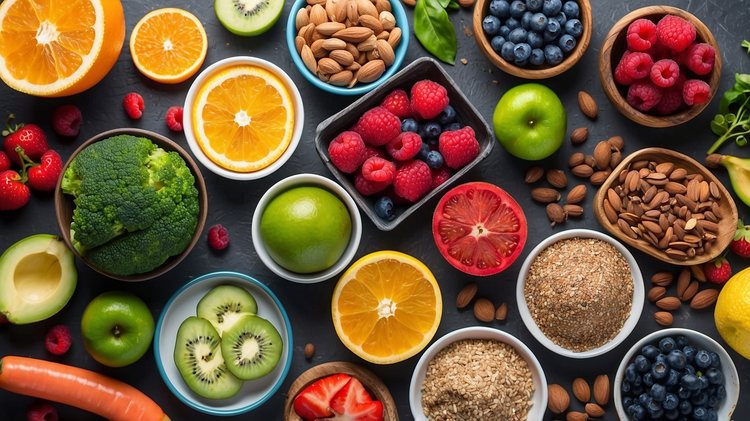Tasty Diabetic-Friendly Snacks That Won’t Spike Your Blood Sugar
For individuals managing diabetes, finding satisfying snacks that don't cause blood sugar spikes can be challenging. However, with the right knowledge and preparation, it's possible to enjoy delicious treats while maintaining stable glucose levels. This article explores various diabetic-friendly snack options, their nutritional benefits, and expert tips for making smart choices that align with a diabetes management plan.

What Makes a Snack Diabetic-Friendly?
Diabetic-friendly snacks are characterized by their minimal impact on blood sugar levels. These snacks typically have a low glycemic index (GI) and are rich in fiber, protein, and healthy fats. The combination of these nutrients helps slow down digestion and the absorption of glucose into the bloodstream, preventing rapid spikes in blood sugar. Additionally, portion control plays a crucial role in ensuring that even nutritious snacks don’t lead to excessive calorie intake or unwanted blood sugar fluctuations.
Top Snacks That Won’t Spike Your Blood Sugar
Several snack options are particularly well-suited for individuals with diabetes:
-
Greek yogurt with berries: High in protein and low in carbohydrates, Greek yogurt paired with fiber-rich berries provides a satisfying and nutritious snack.
-
Vegetables with hummus: Non-starchy vegetables like carrots, celery, and bell peppers paired with protein-rich hummus offer a crunchy, flavorful option.
-
Hard-boiled eggs: Packed with protein and virtually no carbs, hard-boiled eggs are an excellent portable snack option.
-
Nuts and seeds: A small handful of almonds, walnuts, or pumpkin seeds provides healthy fats and protein without significantly impacting blood sugar.
-
Cheese and whole-grain crackers: When consumed in moderation, this combination offers a balance of protein, fiber, and complex carbohydrates.
Expert Tips for Choosing Healthy Snacks
Diabetes management experts recommend several strategies for selecting appropriate snacks:
-
Read nutrition labels carefully, focusing on total carbohydrates, fiber content, and serving sizes.
-
Choose whole foods over processed options whenever possible.
-
Pair carbohydrates with protein or healthy fats to slow down glucose absorption.
-
Practice portion control, even with healthy snacks, to maintain calorie balance.
-
Consider the timing of snacks in relation to meals and medication schedules.
-
Experiment with different combinations to find satisfying options that work well with individual glucose responses.
Easy Recipes for Blood Sugar-Friendly Snacks
Creating homemade snacks allows for greater control over ingredients and portion sizes. Here are some simple recipes:
-
Chia seed pudding: Mix chia seeds with unsweetened almond milk and a touch of stevia. Let it sit overnight and top with fresh berries.
-
Avocado toast: Spread mashed avocado on a slice of whole-grain bread and sprinkle with seeds or a dash of lemon juice.
-
Turkey and cucumber roll-ups: Wrap slices of turkey breast around cucumber sticks for a low-carb, high-protein snack.
-
Homemade trail mix: Combine unsalted nuts, seeds, and a small amount of unsweetened dried fruit for a portable snack option.
-
Roasted chickpeas: Toss chickpeas with olive oil and spices, then roast until crispy for a fiber-rich alternative to chips.
Myths and Facts About Snacking and Diabetes
There are several misconceptions surrounding snacking and diabetes management:
Myth: People with diabetes should avoid snacks altogether.
Fact: Well-planned snacks can help maintain stable blood sugar levels between meals.
Myth: Fruit should be avoided due to its sugar content.
Fact: Whole fruits, in moderation, can be part of a healthy diabetes diet due to their fiber content and nutritional benefits.
Myth: Sugar-free snacks are always the best choice.
Fact: Some sugar-free products may contain high amounts of artificial sweeteners or unhealthy fats, making them less ideal than whole food options.
Myth: Eating frequent small meals is always better for blood sugar control.
Fact: While some individuals benefit from this approach, others may find that three balanced meals work better for their lifestyle and glucose management.
Myth: All carbohydrates should be avoided in snacks.
Fact: Complex carbohydrates, when paired with protein and healthy fats, can be part of a balanced snacking plan for many people with diabetes.
In conclusion, managing diabetes doesn’t mean sacrificing flavor or satisfaction when it comes to snacking. By choosing nutrient-dense options, practicing portion control, and understanding individual responses to different foods, people with diabetes can enjoy a variety of tasty snacks while maintaining stable blood sugar levels. Always consult with a healthcare provider or registered dietitian for personalized advice on incorporating snacks into a diabetes management plan.
This article is for informational purposes only and should not be considered medical advice. Please consult a qualified healthcare professional for personalized guidance and treatment.




